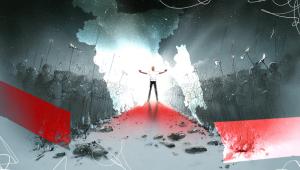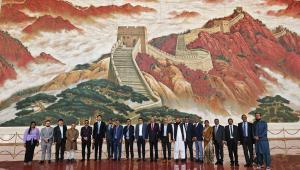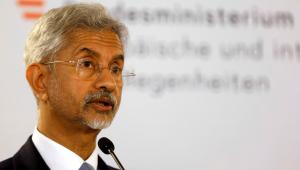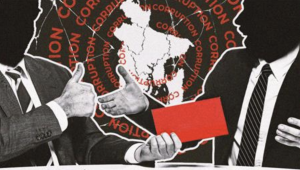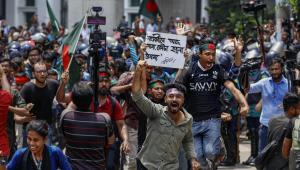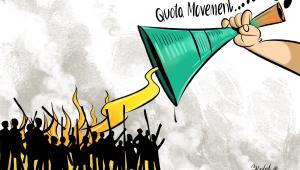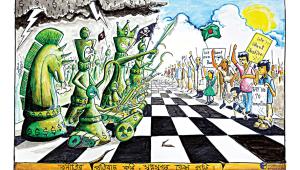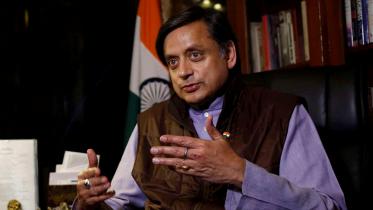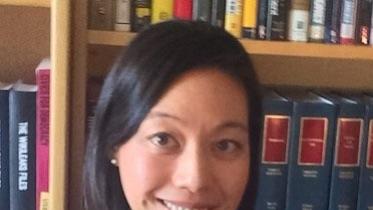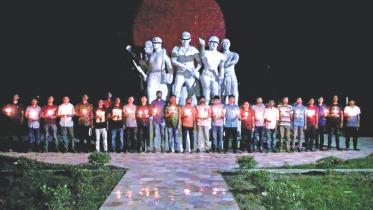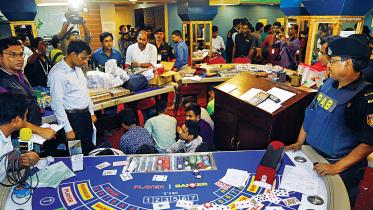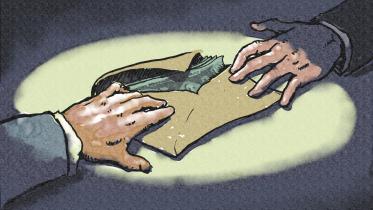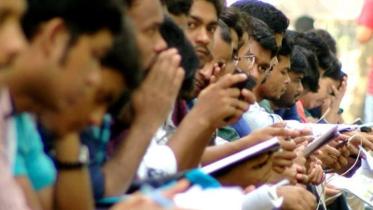Humanity ignores ‘philosophy’ at its own peril
The Greek word “philosophy” (philosophia) is a compound word, composed of two parts: “Philos” meaning love and “Sophia” meaning wisdom—thus translating to love of wisdom.
20 November 2019, 18:00 PM
The spectre of the East India Company
William Dalrymple, Scottish historian, writer and broadcaster, is the author of numerous award-winning books. In this interview with Eresh Omar Jamal of The Daily Star, Dalrymple talks about his latest book, history of the British East India Company and Bengal, and the dangers of unchecked corporate power in the modern world.
14 November 2019, 18:00 PM
Democracy in decline: Backlash against globalisation and the rise of new nationalism
Dr Shashi Tharoor is a former UN under-secretary-general and currently a serving Member of Parliament, Lok Sabha in India.
11 November 2019, 18:00 PM
Truth about the Syrian chemical attack of 2018
In a suburb of Damascus called Douma, that had been occupied by the militant group Jaysh al-Islam, the 2018 Syrian chemical attack that made headlines all over the world allegedly took place on April 7—right as Syrian forces were moving in to retake the area. The western media unequivocally accused the Syrian government of dropping gas cylinders on “moderate rebels” (thus anointing members of Jaysh al-Islam as “moderates”) and killing at least 43 people. Prompting US, France and Britain to launch a barrage of cruise missiles a week later against the Syrian government.
31 October 2019, 18:00 PM
Attack on WikiLeaks is an attack on independent journalism
Nozomi Hayase, Ph.D, is a US-based liberation psychologist and widely published journalist. She has authored two books—Imaginative Cognition and Wikileaks, the Global Fourth Estate: History Is Happening.
30 October 2019, 18:00 PM
The October Revolution of 1917
Like most great historical events, the October Revolution of 1917 that shook Russia and helped shape the world into what it is today was the result of a confluence of factors that had slowly gathered momentum.
27 October 2019, 18:00 PM
The coming unemployment crisis
The problem of high un-employment that has been sweeping across the world ever since the 2008 financial crisis is yet to be adequately resolved. And with the passage of every year, creating enough quality jobs is looking increasingly difficult globally.
22 October 2019, 18:00 PM
The rot that caused Abrar’s death
Since the killing of Abrar Fahad, a number of issues have been raised by people rightly outraged by his gruesome murder at the hands of some Chhatra League members, as well as revelations about how supporters of the ruling party’s student wing have been regularly terrorising ordinary students, with full exemption. Among them is the role of political activities on university campuses.
15 October 2019, 18:00 PM
‘The culture of impunity bedevilling public universities must be dealt with firmly’
What are your thoughts on the UGC probe committee’s recommendation to withdraw the Vice Chancellor of Bangabandhu Sheikh Mujibur Rahman Science and Technology University in Gopalganj, following which he resigned on September 30?
5 October 2019, 18:00 PM
The prime minister’s crusade against corruption
It is no secret that people in general share a common perception that corruption in the country has gone off the rails to the point of becoming nearly unbearable. While high corruption, mainly facilitated by some members of the ruling party of the day, has been a
24 September 2019, 18:00 PM
Can democracies around the world be resuscitated?
The United Nations General Assembly agreed to observe September 15 as the International Day of Democracy in 2007.
14 September 2019, 18:00 PM
Hallmark’s return to the headline
It's been a while since the Hallmark Group has been mentioned in the news. Except for when it has been used as an example of severe corruption and criminality, to illustrate the grave consequences that arise when certain principles and rules are ignored.
11 September 2019, 18:00 PM
Flip-flopping on regulatory decisions: Who does it benefit?
In a reversal of its stance, the Bangladesh Bank (BB) on August 27 decided to allow Beximco Ltd to reschedule its loan of Tk 430.05 crore, thus in principle approving the rescheduling of restructured loans.
31 August 2019, 18:00 PM
Official version of our human rights and what the reality is
Having acceded to the United Nations Convention against Torture and other Cruel, Inhuman or Degrading Treatment or Punishment (UNCAT) on October 1998, Bangladesh was obligated to submit its initial State Report under Article 19 of the UNCAT to the UN’s Committee against Torture (CAT) by November 4, 1999. But it took Bangladesh 20 years to comply—and only after the CAT sent a letter to the Bangladesh government on December 10, 2018, reminding it of its overdue initial report and about the possibility for the Committee to proceed with a review in its continued absence.
27 August 2019, 18:00 PM
Jobs are the reason ‘it’s the economy, stupid!’
Bangladesh’s economy has made massive strides since 1971. After independence, the initial challenges that the economy faced were enormous. And while Bangladesh managed to overcome most of them, many new challenges emerged in the years that followed.
7 August 2019, 18:00 PM
What it means to live in a surveillance society
If you said pre-2013...that the most private moments of your lives were being watched and recorded...people would call you a conspiracy theorist.” – Edward Snowden
31 July 2019, 18:00 PM
How black money can and cannot be reduced
Moving against the current of expert opinion, the government, in the budget for FY2019-20, opened up a five-year scheme to convert black money into white.
23 July 2019, 18:00 PM
Treaty of Versailles 100 years on
The First World War was contemporaneously described as “the war to end all wars”.
14 July 2019, 18:00 PM
Budget proposal not aligned with AL’s election manifesto
The Tk 5,23,190 crore budget proposed by the government, which is the biggest in our country’s history, was somewhat of a letdown. Governments sometimes struggle to fully make use of their budgetary plans in electoral democracies because the party in power may
21 June 2019, 18:00 PM
An important answer to look for in the budget
One of the best instruments the government can use to serve those it works for—presumably the citizens—is the national budget. Unfortunately, if one was to ask ordinary citizens, independent analysts and experts to rate how successfully the government implemented
10 June 2019, 18:00 PM




